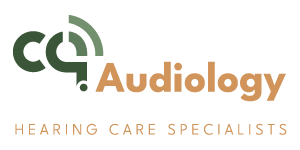Contact Us
We would love to speak with you.
Feel free to reach out using the below details.
Visit our main clinic
- T33 & 34A, City Centre Plaza, 24 Fitzroy Street, Rockhampton, QLD 4700
Get In Touch
- (07) 4848 6528
- reception@cqaudiology.com.au
Hours
- Mon-Fri 9:00AM - 5:00PM
- Sat 9:00AM - 12:00PM
Fill out the form below and we will contact you as soon as possible!
CQ Audiology Visiting Sites
BARCALDINE
Barcaldine 60 & Better Program
13 Willow Street
QLD 4725
BILOELA
Ace Medical Centre
48 Grevillea Street
QLD 4715
BLACKALL
Blackall Hospital
189 Landsborough Highway
QLD 4472
BLACKWATER
North Blackwater General Practice
14 Blain Street
QLD 4717
EMERALD
Lot 1 Pilot Farm Road
QLD 4720
MOUNT MORGAN
41 Morgan Strreet
QLD 4714
ROCKHAMPON CITY
T 33 & 34A City Centre Plaza
24 Fitzroy Street
QLD 4700
TAMBO
Tambo Multi Purpose Centre
26 Arthur Street, Tambo Queensland 4478
LONGREACH
North & West Queensland Primary Health Sercvies
19 Duck Street, Longreach Queensland 4730
YEPPOON
Keppel Bay Medical Centre
Shopt 26, Keppel Bay Plaza
64-67 James Street
QLD 4703

Hearing Test Alton Downs
Why Do I Need a Hearing Test?
Do you need a hearing test in Alton Downs? Have you ever found yourself asking others to repeat themselves, or noticed that you’re turning up the TV volume higher than usual? These could be subtle signs that your hearing isn’t what it used to be. Regular hearing tests are crucial, not just for detecting hearing loss, but for maintaining your overall health and quality of life. They help pinpoint issues early, allowing for timely intervention. But what might you discover about your hearing health through these assessments, and how could this knowledge significantly alter your approach to daily interactions and activities? Let’s explore the hidden impacts and benefits that might just surprise you.
Importance of Regular Hearing Tests
Regular hearing tests are crucial because they allow for the early detection and management of hearing loss, ensuring you maintain good communication and overall well-being. If you’re over 60, it’s recommended you have your hearing checked annually. This frequency helps monitor your hearing health as you age, when you’re more susceptible to hearing loss.
For younger adults, testing every 3-5 years is advisable. Catching any changes early on can make a big difference in how effectively any hearing issues can be managed. Contact our centre in Rockhampton or our visiting sites, to book your hearing assessment. By staying ahead of the game, you’re not just taking care of your ears, but you’re also safeguarding your ability to interact smoothly with the world around you.
Children should also undergo hearing tests early in life. These tests play a pivotal role in their language development. Our family medical practice in Rockhampton is equipped with the latest technology for precise assessments. Identifying and managing hearing issues early in a child’s life can significantly influence their learning and communication skills.
Moreover, regular hearing assessments can help reduce cognitive decline linked to hearing loss. By monitoring changes in your hearing levels through consistent testing, you ensure that any necessary interventions are timely, which can greatly enhance your quality of life.
Identifying Signs of Hearing Loss
If you’re struggling to follow conversations, especially in noisy settings, you might be experiencing signs of hearing loss. Don’t delay, make an appointment today with our family medical practice in QLD to get started on a treatment plan. This common issue often starts subtly, but gradually becomes more noticeable. You might also find yourself frequently asking others to repeat themselves or misunderstanding what’s being said. These are clear indicators that your hearing isn’t as sharp as it used to be.
Another sign to watch for is a persistent ringing or buzzing in your ears, known as tinnitus. While it can be intermittent or constant, it often hints at underlying hearing issues. Moreover, if you’re turning up the volume on your TV or radio higher than what others find comfortable, this could be a response to decreased hearing ability.
Children showing delays in speech and language development may also be exhibiting signs of hearing loss. It’s crucial to monitor their interaction and response to sounds, as early detection can significantly improve management and outcomes.
Recognising these signs early can lead you to seek necessary evaluation and intervention. Don’t overlook subtle changes; addressing them promptly can help maintain your quality of life and prevent further hearing deterioration.
Understanding Different Hearing Tests
After recognising signs of hearing loss, it’s important to understand the different types of hearing tests available to accurately assess your hearing health. One common test is pure tone audiometry, where you’ll listen to sounds at various pitches and volumes through headphones. The goal is to find the quietest sounds you can hear at each frequency, which helps pinpoint the type and degree of hearing loss.
Another method is tympanometry, which evaluates the health of your middle ear by measuring how your eardrum responds to slight changes in air pressure. This test can detect issues like fluid in the ear or eardrum perforations, which might be affecting your hearing.
For children, especially those too young to communicate effectively, behavioral tests are utilised. These assessments observe how a child responds to sounds, such as turning their head towards a noise, which provides indirect clues about their hearing capabilities.
While online hearing tests are handy, they lack the precision and reliability of tests conducted by an audiologist. The results from an audiologist’s evaluation are plotted on an audiogram, a detailed chart that makes understanding and managing your hearing health easier. This professional insight is crucial to tailoring the right treatment or intervention.
Hearing Tests for Various Age Groups
Hearing tests are tailored to meet the specific needs of different age groups, ensuring that everyone from children to seniors can maintain optimal hearing health. Our Rockhampton location is equipped to serve your entire family. As you grow older, your hearing needs change, and so do the types of tests you might need.
For children, specialised behavioral tests are crucial. These are designed to engage kids in a way that accurately assesses their hearing ability. It’s not just about whether they can hear, but how well they can hear in different environments. This early detection is key in managing potential hearing issues that could affect language development and social interactions. For those in the Rockhampton area, our centre in QLD 4702 offers specialized services.
As an adult, you’ll likely undergo pure tone audiometry. This test helps determine the softest tones you can hear at various pitches and volumes, pinpointing any specific hearing loss areas. It’s straightforward and highly effective in catching any decline in hearing ability.
For seniors, regular testing becomes even more critical. Age-related hearing loss can creep up gradually, often making it hard to notice until it’s significant. Regular checks ensure you’re not missing out on life’s conversations and can intervene early with treatments or hearing aids if needed.
Explaining the Audiogram
Let’s delve into what an audiogram is and how it maps out your hearing capabilities across various frequencies. An audiogram is essentially a chart that captures how well you can hear different pitches or frequencies. During a hearing test, you’ll listen to sounds at various frequencies, and the softest sounds you can hear at each frequency are marked on this chart. These marks are your hearing thresholds.
The audiogram helps to assess both the degree and type of hearing loss you might have. It’s crucial because it pinpoints specific areas where your hearing might be diminished. The test contrasts results from air and bone conduction tests. Air conduction involves sounds played through headphones, which travel through your outer and middle ear. Bone conduction, however, bypasses the outer and middle ear by sending vibrations directly to the inner ear through a device placed on the bone behind your ear.
This distinction is vital because it helps identify where your hearing issue lies—whether it’s in the inner, outer, or middle ear. By understanding these results, you’re better equipped with knowledge about your hearing health, though specific treatments or management strategies are determined later.
Managing Different Types of Hearing Loss
Understanding the different types of hearing loss is crucial for selecting the right treatment strategy. Our medical practice in QLD 4702 is renowned for our expertise in this area. If you’re diagnosed with conductive hearing loss, it typically involves issues with the outer or middle ear that can often be medically or surgically treated. Sensorineural hearing loss, on the other hand, occurs due to damage to the inner ear or auditory nerve and usually requires hearing aids or cochlear implants as management options. Visit our centre in Rockhampton for a consultation.
For those with mixed hearing loss, you’ll face a combination of both conductive and sensorineural issues. Your treatment plan may include a mix of medical interventions and hearing devices. When dealing with congenital hearing loss, identified early in life, interventions might involve immediate use of hearing aids, educational support, and other communication methods like sign language. Our centre in Rockhampton specializes in pediatric care. Acquired hearing loss, developed later, might stem from exposure to loud noises, aging, or disease, and managing it could involve both medical treatment and the use of auditory devices.
Your audiologist will categorise your hearing loss as mild, moderate, moderately severe, severe, or profound, which directly influences the treatment approach. Early intervention, guided by accurate diagnosis through hearing tests, is key to preventing further deterioration and enhancing your quality of life. Our medical practice in QLD 4702 offers comprehensive diagnostic services.
Accessing Hearing Test Services
To access a hearing test, you can book an appointment directly with CQ Audiology without needing a doctor’s referral. This streamlined process makes it easier for you to get the necessary assessments without additional steps. If you’re worried about costs, check if you’re eligible for the Australian Government Hearing Services Program which offers fully subsidised tests. You can easily find out if you qualify by visiting their online portal.
If your situation requires more specialised attention, consider visiting an Ear, Nose, and Throat (ENT) specialist. With a referral from them, you might be eligible for Medicare rebates on certain hearing tests, reducing your out-of-pocket expenses. Our medical practice in Rockhampton is well-versed in navigating these benefits. Don’t forget to consult various reliable sources online; they’re a treasure trove of information about hearing tests and can help you understand what to expect and how to prepare.
Additionally, if you have private health insurance, look into whether it provides coverage for hearing services. Many insurers offer subsidies that can significantly lower the cost of hearing tests and treatments. By exploring all these avenues, you’ll find it simpler and more affordable to manage your hearing health effectively.
DISCLAIMER: The content on our site is intended for educational purposes only and should not be interpreted as an endorsement or recommendation of any treatments or products without a comprehensive hearing assessment. Users should seek professional advice and fully understand any potential side effects or risks before starting any treatment. Products mentioned on our site are not available for purchase by the public without prior consultation with a hearing health expert.
